Zinc and iodine solution react like this:
The rate of reaction can be followed by measuring the mass of zinc metal at regular intervals, until all the iodine has been used up.
Sketch a graph showing the mass of zinc on the axis, and time on the axis.

Important Questions on The Speed of a Reaction
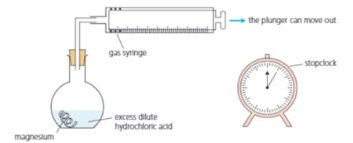
Clean the magnesium with sandpaper. Put dilute hydrochloric acid in the flask. Drop the magnesium into the flask, and insert the stopper and syringe immediately. Start the clock at the same time.
Hydrogen begins to bubble off. It rises up the flask and into the gas syringe, pushing the plunger out:

At the start, no gas has yet been produced or collected. So the plunger is all the way in.

Now the plunger has been pushed out to the mark. of gas have been collected.
For the above experiment. Explain why the magnesium ribbon is cleaned first.
Zinc and iodine solution react like this:
The rate of reaction can be followed by measuring the mass of zinc metal at regular intervals, until all the iodine has been used up.
How will the graph change if the temperature of the iodine solution is increased by ?
Zinc and iodine solution react like this:
The rate of reaction can be followed by measuring the mass of zinc metal at regular intervals, until all the iodine has been used up.
How will the graph between concentration of zinc and time changes, if the temperature of the iodine solution is increased by ? Explain your answer using the idea of collisions between particles.
Some pondweed is placed as shown:
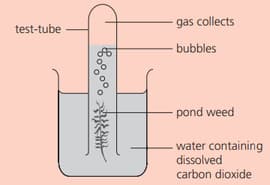
Name the gas that collects in the test tube.
Some pondweed is placed as shown:
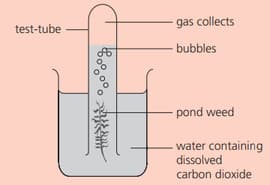
What is the products formed other than oxygen?
Some pondweed is placed as shown:
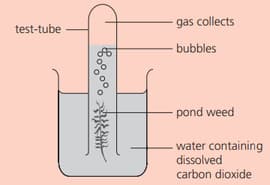
This experiment must be carried out in the light. Why?
Some pondweed is placed as shown:
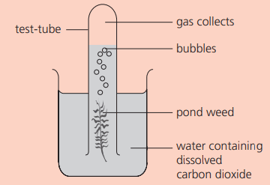
Using the apparatus above, suggest a method by which the rate of reaction could be found.
Some pondweed is placed as shown:
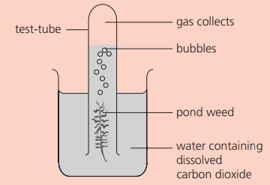
What would be the effect of bringing a lamp close to the beaker? Explain your answer.
